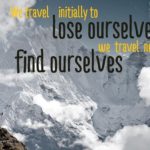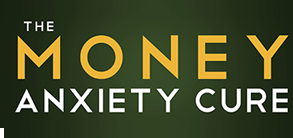Two weeks after almost losing my life on the Seti River, (Close Call #1: The River) I was ready to set out on another life adventure. In my travels through Nepal, I struck up a conversation with a friendly man who, upon hearing of my desire to climb the Himalayan Mountains, encouraged me to reach out to his family friend who claimed to be an experienced professional mountain guide.
I congratulated myself on my good fortune at finding a tour guide so easily, for in Nepal one must be licensed and undergo vigorous training to get certified. Without checking his credentials, we agreed upon a fee and prepared for our 10-day hike through remote villages that would take us beyond 15,000 feet. Because our climb was steeply vertical, my guide encouraged us to pack light, assuring me we would be welcomed at the village ‘homestays’ where travelers customarily are fed and housed.
We started our ascent a few days later on a remote trail reaching 12,000 feet straight up. We hiked from early in the morning until late afternoon with no villages in sight. As the hours passed, it became clear to me that my guide was not familiar with this route, could not read a map, did not pack basic essentials like a flashlight, a first aid kit, nor a tent, and we were in serious trouble. When night began to fall, my fear turned into panic as my guide finally came clean and admitted we were lost.
With no provisions and temperature plummeting with the sunlight, we had perhaps four hours to find a manned and equipped base camp on our ill-chosen remote trail. My muscles screamed and my stomach growled, but fear kept me alert as we ascended Annapurna Mountain.
After a few desperate hours, we finally found our base camp. It was a 10’ x 12’ hut with no electricity and no food. The current occupants, eight nomads and a few teenagers, allowed us access and together we huddled together for warmth against the cold night air. As the temperature dipped down to 10 degrees, we pooled our collective warmth by huddling together to stay alive, and my heart (and belly) was warmed by the stranger’s generous offer to share their tea and soup. I was grateful for the human companionship and grateful for the warmth that the other men’s bodies gave me throughout that very long night. 
Though I barely survived the night, I learned invaluable lessons from my trek in the Himalayan Mountains.
- If you panic, it’s over!
When I was at base camp and my companions turned in for the night, I found a comfortable and safe place, and consciously practiced deep breathing exercises for the four dark hours before daybreak. The conscious breathing allowed me to focus my mind on my breath and regulate my heart and lungs. If it were not for my ability to control my mind, my body would have certainly suffered. This practice can just as easily help us when facing a mountain of debt, financial instability and the fear of less money coming in than going out.
“Face your fears directly, if they no longer serve you, let them go!”
Throughout your waking hours, when you notice your mind begin to race, pause to center yourself. Take 20 slow and steady breaths and notice how your body relaxes with each breath. Witness your response to the calming breaths you take. Reassure yourself that “This is where I am right now and this is what is happening. There is no one to blame and it will get better.” You may not be able to change your situation right now, but you can learn to quiet your mind until a solution can be found.
- Be responsible for your own safety. Certainly I could have made better precautions to ensure my own well-being during this adventure. However, I was caught up in the moment and chose to leave my life in the hands of a stranger, assuming his expertise and ability to provide me with the basic essentials and safety necessary to make this once-in-a-lifetime trek through the Himalayan Mountains. There were many times leading up to the trip for me to question his credentials, review our itinerary and provisions, and make other arrangements – but I chose to trust blindly. Likewise, our financial adventures can sometimes look too good to be true – and are!
Think twice before becoming involved in a ‘get-rich-quick’ opportunity, even if told to you by a friend. Do your homework, judge the risks, and proceed with caution. You may not have another chance at a secure and happy ending.
- Pause often on your way. The mind loves to rush. Often it works faster than the body is capable of keeping up with, creating a cascade of problems. Wherever you are along your path, remember to stop often, breath, observe your environment, acknowledge the joy, the awe, the worry, the nostalgia, then restart your journey when you are centered, and pace yourself one step at a time. Don’t rush into big purchases, keep clean financial records, review statements, and create a financial road map. For while the skies are blue today, one misstep could lead to a tumble down to financial ruin. I reflected on this truth both on my ascent and my descent down Annapurna Mountain.
- Going down is way more dangerous than going up. When the knees are shaky, oxygen is thin, and our path is not clear, our minds will race, making it easier to slip and fall. I must have tripped down that mountain ten times, my feet falling out from under me as my mind wandered.
The same thing can happen with our finances. When we get anxious about our financial situation and the path is not clear, we can sometimes react impulsively or wander off into unhealthy habitual patterns. Its times like this we must take slow, mindful steps through our financial journey.
- Ask for help with graciousness and humility. Reach out to those whom you feel could help direct you on your financial path. While my guide and I were anxious and scared, I knew that as we ran in to nomads and villagers, many of whom had never seen Westerners and may have been startled by our appearances, it was important that we center ourselves and with kind clarity ask for directions. Those we met responded with equal clarity and kindness and went out their way to show us the way. If we had run to them clinging and crying, their reactions might not have been helpful and may have likely created a negative situation we would have had to deal with, as well.
Many people love to help, but our minds must be clear and our hearts must be open to receive. When it’s time to ask for financial direction, remember to breathe deeply and become centered. Be clear of your objective before you make your request. The chances your responses will be favorable will increase dramatically.
- Beware of Leaches. During our treacherous 12,000 foot descent through the mountain’s tropical jungles, we were prey to countless leaches, burrowing into the flesh under our clothing and in our boots. Certainly, it was the absolute worst part of my travels. As I raced through the jungle and my body grew weaker, my mind wandered to the analogy of those leaches we experience in our everyday lives. Have you experienced those who ask and ask for assistance and then can’t help themselves to put your generosity to good use, or worse, have no intention of finding a better way?
Be generous to those who can help themselves, but be wary of those who have no intention to do more than bleed others dry.
Please don’t misunderstand. We all need occasional assistance – be it financial, spiritual, physical, or what have you. And what we do with that assistance does not go unnoticed. When the villagers on Annapurna Mountain showed us the way, they could see we followed their directions. Likewise, when we were hungry, they could see the result of their generosity was our renewed vigor to get back down the mountain.
Ask yourself: What drains me? Are there people or groups that take my time, my effort, or my resources without reciprocating or putting my efforts to good use? If giving is something that you pride yourself on doing, might you consider changing your charity to one that more supports you and where you can see a return on your investment?
- Receive what is given to you. Like the strangers in the base camp who offered their meager provisions, accept with gratitude and humility the kindness of those who want to help you. There are times we all need kindness and there will be an opportunity for us all to both give and to receive.
- Celebrate your success. Many of us don’t take the time to really allow the joy that comes from acknowledging our own accomplishments, be they big or small. That harrowing next day on the mountain as we trekked down toward safety, my guide and I were weary from fear, cold and exhaustion. We stumbled and fell countless times down the steep and unstable terrain, were forced to cross a raging river on a flimsy bamboo bridge, but then dragged ourselves (and our leaches) toward the first house we found as nightfall began to close in. The kind strangers took us in, let us bathe, and fed us. We celebrated with a beer…and I have to say it was the best beer I had ever tasted!
In my travels this year, including my trip to Nepal, I have seen how Nature is a remarkable catalyst for awakening and change. I see, also that it is symbolic of how our financial life journey is a natural process of flow; ascending and descending our own unique financial peaks and valleys.
 On my long flight home, as I incorporated the lessons of my journey into my Western life, I realized with stark clarity just how true prosperity reflects what brings us the greatest joy and peace. For me, joy comes from connecting with people from all over the world. Learning what inspires them and seeing our commonality. And my peace comes from knowing I am on financial bedrock and helping others to know that peace.
On my long flight home, as I incorporated the lessons of my journey into my Western life, I realized with stark clarity just how true prosperity reflects what brings us the greatest joy and peace. For me, joy comes from connecting with people from all over the world. Learning what inspires them and seeing our commonality. And my peace comes from knowing I am on financial bedrock and helping others to know that peace.
Whether you live in a village in Nepal or in a high rise apartment in San Francisco, my wish for you this Holiday Season is to find your own unique peace and joy.
